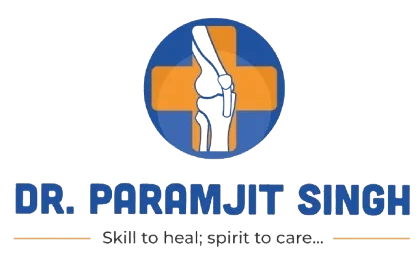Frozen shoulder is a condition that can cause significant pain and limited mobility in your shoulder joint, making even simple tasks feel impossible. Whether you’re unable to reach for a shelf or struggle to lift your arm, this condition can take a toll on your quality of life. Understanding frozen shoulder, its causes, and treatment options is essential to regaining your shoulder’s health and functionality.
1. What is Frozen Shoulder?
Frozen shoulder, also called as adhesive capsulitis, occurs when the shoulder joint’s movement becomes restricted due to inflammation and scarring in the tissue surrounding the joint. The shoulder joint, made up of a ball (humeral head) and socket (glenoid), is typically one of the most flexible in the body. However, when it becomes frozen, the capsule of the joint becomes thickened and tight, severely limiting movement and causing pain. This condition typically progresses in three stages: freezing, frozen, and thawing.
2. What Causes Frozen Shoulder?
The exact cause of frozen shoulder is idiopathic, but several factors can contribute. It often develops after the shoulder has been immobilized, such as following an injury or surgery. Other causes include inflammation of the muscles and tendons, such as in rotator cuff tendinitis or bursitis. In some cases, diabetes, thyroid problems, or other health conditions may increase the risk. The inflammation results in the development of scar tissue, which makes the shoulder stiff and painful.
3. How is Frozen Shoulder Diagnosed?
A physician will begin the diagnosis with a thorough physical examination and your medical history. Your health care professional might also recommend imaging tests, such as X-rays, to exclude other conditions like arthritis or calcium buildup. An MRI may be recommended to confirm the presence of any soft tissue changes around the joint, helping to diagnose frozen shoulder accurately.
4. What Are the Treatment Options for Frozen Shoulder?
Treatment primarily focuses on reducing pain and improving mobility. Physical therapy is key, where a therapist will guide you through stretching exercises to gently stretch the shoulder capsule and regain range of motion. Anti-inflammatory medications like ibuprofen or aspirin can reduce pain and swelling. For more severe pain, steroid injections may be recommended to alleviate inflammation. Consistent therapy and stretching at home are essential to achieving long-term recovery. In some cases, when non-surgical methods do not help, surgery may be needed to release the scar tissue and restore shoulder function.
5. How Long Does Recovery from Frozen Shoulder Take?
Recovery from frozen shoulder can be a lengthy process. With physical therapy and dedication, most people experience significant improvement within 6 to 9 months, though some may recover in a few months. The full rehabilitation process, including consistent stretching and strengthening, can last anywhere from 6 weeks to several months, depending on the severity of the condition. Patience and commitment to your therapy plan are key to a full recovery.
Ready to Get Back to an Active Life? Visit K D Hospital Today!
At K D Hospital, we specialize in diagnosing and treating conditions like frozen shoulder, using the latest techniques and personalized care plans. Our team of orthopedic experts will work closely with you to ensure effective treatment and guide you on the road to recovery.


